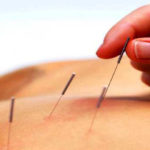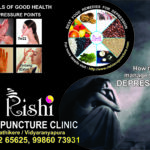Acupuncture treatment – Everyone experiences acupuncture differently, but most feel no pain or very minimal pain as the needles are inserted. Few of the frequently asked questions are answered below to know about Acupuncture. This helps us to move on to our next topic with basic understanding and clarity.
What is Acupuncture?
Acupuncture is an essential part of complimentary treatment. It is based on ideas and theories formulated over thousands of years. Acupuncture is the insertion of very fine needles into specific sites on the body chosen according to the guiding principles of Traditional Oriental Medicine. Needles may also be used with an application of moxibustion, an herbal heat source, or sometimes, an electrical pulse is combined with the needles for increased stimulation. Depending on what way and the point where needles are inserted, natural healing takes place. It encourages recuperative power, immunity, physical and emotional health. Thus improves overall functioning and well-being of body by balancing and maintaining health in a natural way.
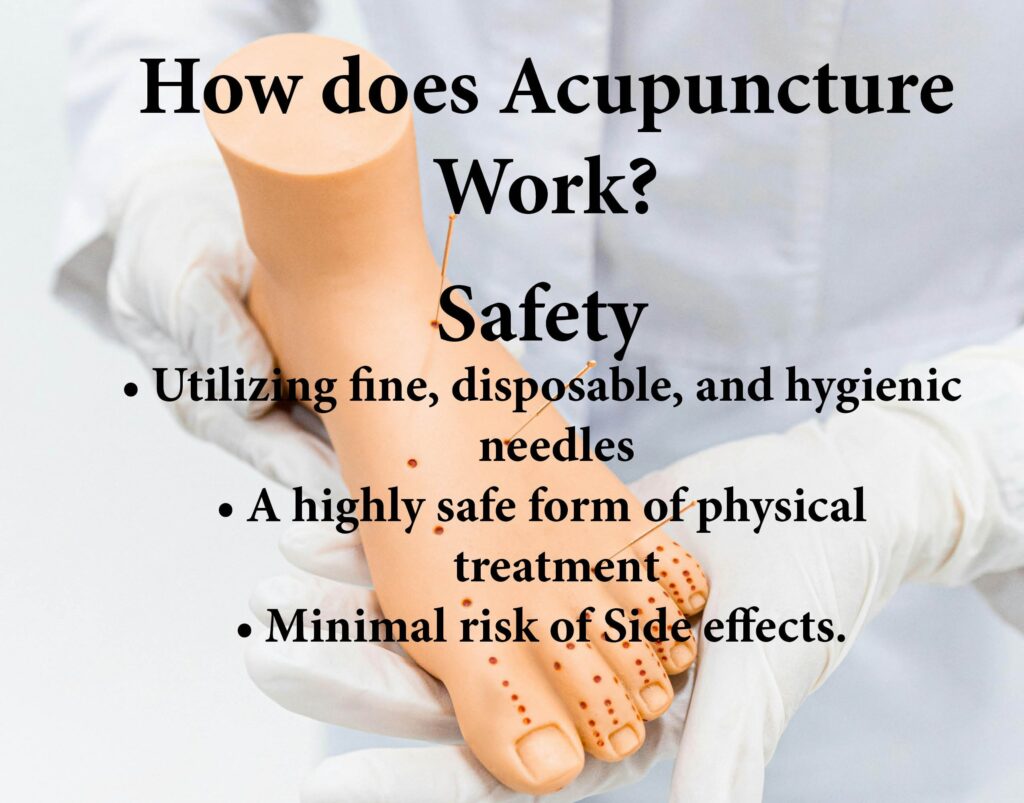

How does acupuncture work?
Western science posits that it triggers three primary mechanisms in the body:
- Activation of opioid systems: Research has found that several types of pain-reducing opioids may be released into the central nervous system during acupuncture.
- Changes in brain chemistry: Studies have shown that acupuncture may alter brain chemistry by altering the way in which neurotransmitters and neuro hormones are released. Acupuncture has also been documented to affect sensation and involuntary body functions, such as immune reactions and processes involved in regulating blood pressure, blood flow and body temperature. Modulation of subcortical structures of the brain may be an important mechanism by which acupuncture exerts its complex multisystem effects.
- Changes in blood flow: Acupuncture and Oriental medicine affects the circulation of blood to the affected area, which helps to remove pain-causing chemicals and restore normal function.
Eastern approach :
The Traditional Oriental Medicine explanation of how acupuncture works is that the channels or meridians, of energy run in regular patterns throughout the body and over its surface. These energy channels flow through the body to irrigate and nourish the tissues and organs. An obstruction in the movement of the energy is like a dam that can cause obstruction in the flow of blood, bodily fluids and metabolic waste, thereby creating imbalances in the body.
Needling acupuncture points effects the meridian by releasing obstacles and regenerating a healthy flow. Since the meridians link with the organs, a treatment can therefore, also help to improve the function of the internal organs. The energy flow and biochemical balance formed by acupuncture encourages natural healing abilities and promotes physical and emotional wellbeing.
Western science has also suggested several theories for how Acupuncture works, including
- conduction of electromagnetic signals,
- activation of opioid systems, and
- changes in brain chemistry, sensation, and involuntary bodily functions etc. (NCCAM Research Study, 2002 has thrown some light on Acupuncture.)
Can You Guarantee My Condition Will Improve with Acupuncture?
In both Eastern and Western medicine, there are no guarantees, just results. According to research and study Acupuncture treatment helps to treat many health conditions. WHO (World Health Organisation) has recognized and approved Acupuncture as one of the effective mode of treatment based on several research and results obtained.
HH Acupuncture works on the body as a whole; therefore the healing process is gradual rather than immediate. There are some cases where instant improvement is noticed by the patient after treatment.
What are the theories of how Acupuncture works?
Scientists have no comprehensive answer as to how it works. Here is a list of a few currently proposed theories:
- Acupuncture raises levels of triglycerides, specific hormones, prostaglandins, white blood counts, gamma globulins, opsonins, and overall anti-body levels. This is called the “Augmentation of Immunity” Theory.
- The “Endorphin” Theory states that acupuncture stimulates the secretions of endorphins in the body (specifically Enkaphalins).
- The “Neurotransmitter” Theory states that certain neurotransmitter levels (such as Seratonin and Noradrenaline) are positively affected by acupuncture.
- The “Circulatory” Theory holds that acupuncture has the effect of constriction or dilation of blood vessels. This may be caused by the body’s release of Vasodilaters (such as Histamine), in response to acupuncture.
- “Gate” Theory states that the perception of pain is controlled by a part of the nervous system that regulates the impulse, which will later be interpreted as pain. This part of the nervous system is called the “Gate”. If the gate is hit with too many impulses, it is overwhelmed and closes, preventing the pain impulse from getting through. Acupuncture treats the smallest gates and nerve fibers which are the ones first affected.
What is an Acupuncture treatment like?
Patient may have a slight sensation similar to pinch or mosquito bite when needle is injected. Once the needles are placed there may be a slight tingling, numbness or heaviness in the area while the practitioner is stimulating the point. These are positive signs proving needles are on right acupuncture point. Usually you will be lying on a comfortable padded table or in an easy chair. Often, people become very relaxed and fall into a light sleep during the session.
Should I still take my prescribed medication while I’m having a course of acupuncture?
Yes, initially you have to continue with your prescribed medicine. The acupuncture treatment may enable you to reduce or even stop taking some forms of medication in later days of your treatment, but you should always consult your doctor regarding any change of prescription. DO NOT stop taking medication without professional guidance.
How should I prepare?
- Wear loose, comfortable clothing for easy access to acupuncture points.
- Don’t eat large meals just before or after your visit.
- Refrain from overexertion, drugs, or alcohol for up to 6 hours after the visit.
- Avoid stressful situation. Make time to relax and be sure to get plenty of rest.
- Between visits, take notes of any changes that you may have experienced.
- Do not take treatment immediately after taking bath, sexual activity or after exercise.

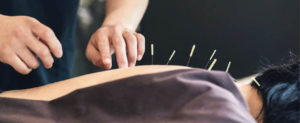
Are there risks or side effects to acupuncture?
Needle used for acupuncture is a fine, disposable, hygienic, FDA-approved medical device. Acupuncture is one of the highly safe form of physical treatment.
How deep do the needles go?
Acupuncture points are located on or close to the skin’s surface, but needles can be inserted from 1mm to few inches deep. The depth of insertion depends on the nature of the location and condition being addressed, the patients’ size, age, and constitution, as well as the acupuncturist’s style and training.
How long do I have to get acupuncture for?
Every body is different. If two people come in with a similar complaint, each will receive a different treatment plan and recommended frequency of visits. Generally, three treatment levels are used to determine the frequency and longevity of treatments: acute symptom relief, restorative care and continuing care. Know what to expect by these general stages of treatment:
Acute symptom level: an acute pain and/or another condition is interfering in your ability to function in your daily activities. The treatment plan: more frequent visits over the next few weeks or months. For example, a patient with acute back pain may have 1-2 visits each week for two to five weeks before moving to the restorative care level.
Restorative care level: acute symptoms are being addressed and treatments per week are less frequent. This level is about attempting to maintain the gains you have made and sets the foundation for a plan for to continue deeper healing.
Continuing care level: a longer-term support plan with less frequent visits, monthly or even seasonal for preventative maintenance. This aims at strengthening your body’s resistance to illness and keeping you going on your path to wellness.
How many sessions of treatment required to know the changes and what is the treatment frequency?
Many people start to see a significant difference within three to four treatments but some take longer to respond depending on the condition being treated. If no difference is felt by the end of eight to ten treatments, the diagnosis of the condition should be reconsidered and further medical investigations may be needed.
Acute injuries are treated as soon as possible and often daily at first. Chronic conditions may need repeat maintenance treatments to maintain the momentum after an initial period of frequent treatments. Post treatment exercise and discipline in diet is extremely important for continued improvement and recovery.
Generally treatments every second day (Mon, Wed and Fri) would be considered frequent treatment. Maintenance treatments could range from weekly to monthly or when symptoms begin to recur.
Can I buy an acupuncture machine for self-treatment?
It is highly recommended to avoid self-treatment, either with needles or other gadgets. Only a properly trained practitioner is qualified to objectively diagnose and administer appropriate acupuncture. Gadgets sold with manuals indicating “certain points for certain symptoms” do not use traditional acupuncture theory, and the self-treating patient can easily overlook other relevant symptoms.
Is Acupuncture painful?
Acupuncture is usually a very comfortable treatment. Needles are very fine, metallic and as thin as a hair, making them quite painless upon insertion. Everyone experiences acupuncture differently, but most feel no pain or very minimal pain as the needles are inserted.
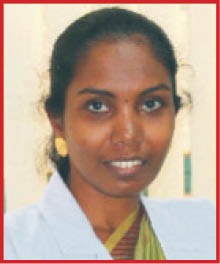

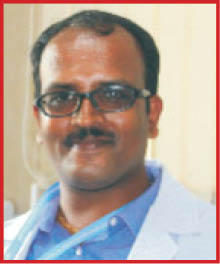

DR. GOWRI B. N. DR. VENKATESH PRASAD K. N.
No.2, 1st Cross, 7th Main Mathikere, Near Canara Bank, Bangalore – 560 054. Contact : 9844265625 / 9986073931



